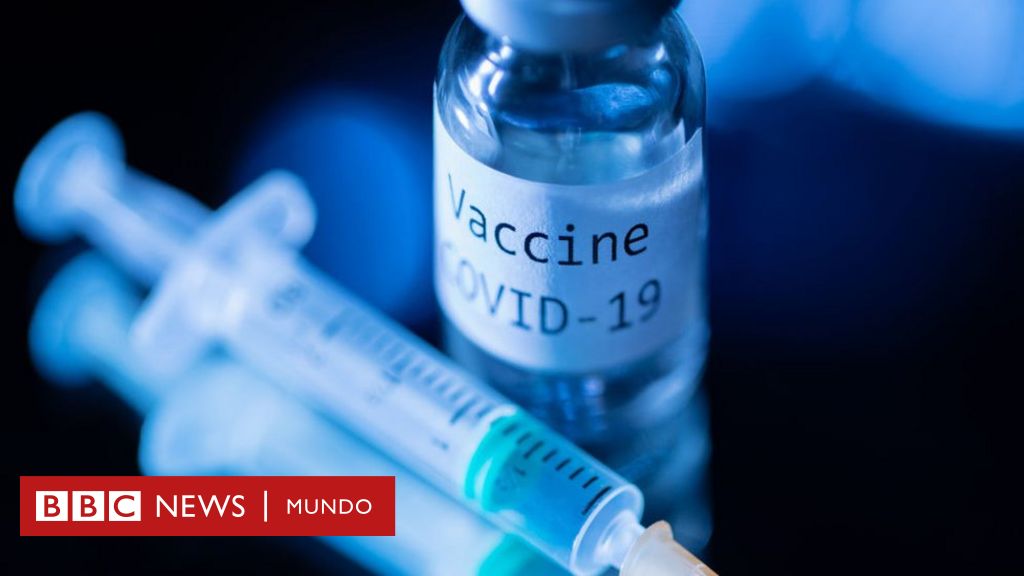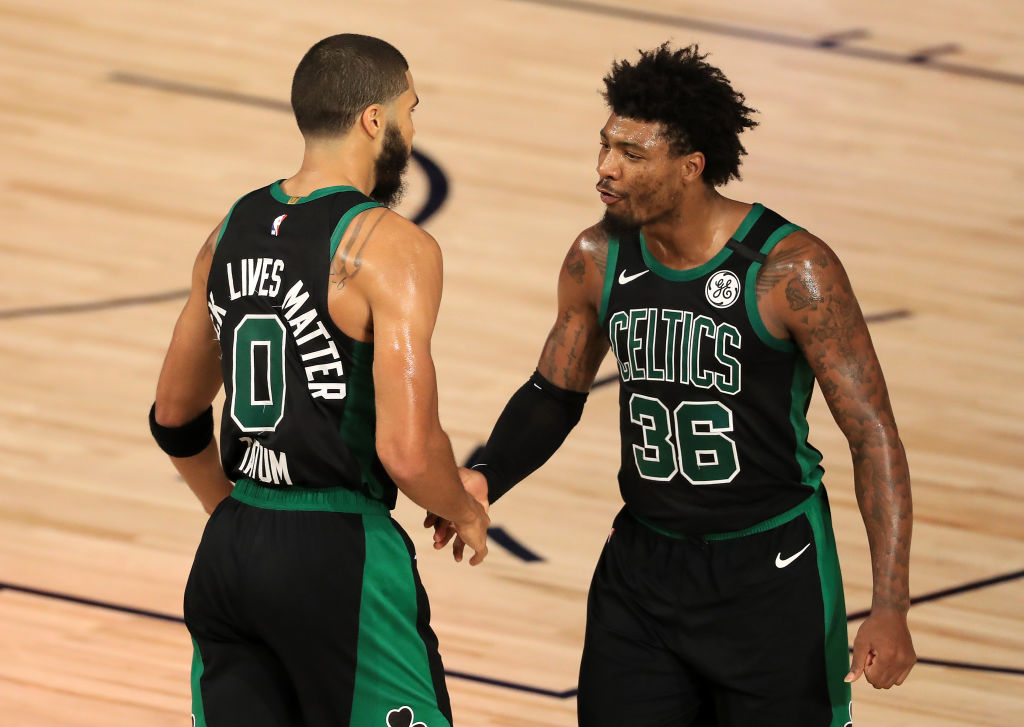- Laura Plitt
- BBC World News
—
2 hours
Image source, Getty Images
—
The covid-19 vaccine teaches the immune system to fight the disease.
–
The United Kingdom and the United States have already started their mass vaccination program against the coronavirus with the Pfizer / BioNTech vaccine.
–
The immunization, produced in Belgium, is a new type of vaccine called RNA that uses a small fragment of the virus’ genetic code to teach the body to fight COVID-19 and build immunity.
–
The rest of the vaccines – including the Russian Sputnik V, which began to be supplied en masse in Moscow, the Chinese Sinovac, the American Moderna or the British Oxford-AstraZeneca – are still in the race and the approval of some of them is expected from imminent form.
–
In the UK, the first to receive the initial dose of the two necessary to achieve full immunity are people over 80 years of age, frontline healthcare professionals, as well as workers in nursing homes.
–
And while the majority of the population eagerly awaits their turn, there are those who look at the vaccine with suspicion because of the unknowns that still have no answer.
–
One of the questions that is repeated (although not necessarily among those who disagree with vaccination) is ¿what generates a stronger immune response: lnatural infection or the vaccine?
–
BBC Mundo spoke with three experts on the subject in search of an answer.
–
Depending on the case
Bottom line: not known yet.
–
“There are some diseases where the vaccine protects more than the disease and other cases where the disease provides more protection than the vaccine,” Carlos Rodrigo, vaccinologist and Clinical Director of Pediatrics at the Germans Trias i Pujol Hospital, in Barcelona, explains to BBC Mundo.
–
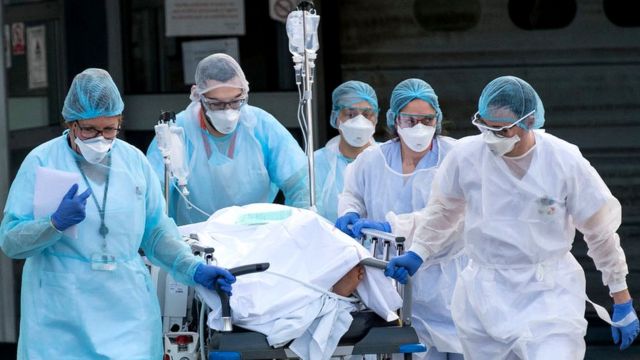
Image source, Getty Images
—
While the virus causes few or no symptoms for some people, others must be hospitalized or hooked up to a respirator.
–
Rodrigo gives as an example classic diseases such as measles, chickenpox, or mumps, where the natural infection is the one that grants a longer immunity, where the usual thing is that once you pass it you will not get sick again.
–
In other types of infections, such as those caused by pneumococci or meningococci (two types of bacteria) in children or by human papillomavirus (VPH) —A group of viruses that can cause warts and various types of cancer — the situation is exactly the opposite.
–
In the case of HPV, for example, the vaccine generates a stronger immune response than natural immunity, since the latter is particularly weak.
–
This is because, among other things, the virus uses various tactics to evade the immune system, explains Maitreyi Shivkumar, professor of Molecular Biology at the Faculty of Pharmacy at De Montfort University, in the United Kingdom.
–
“Many viruses, including HPV, have proteins that block the immune response or simply maintain a low profile to avoid detection.”
–
In contrast, the vaccine “contains a high concentration of a single protein – the one that protrudes from the surface of the virus and the one detected by the immune system – in its purest form.”
–
By supplying a large amount of this protein, the response that is generated is much stronger, says Shivkumar.
–
And, in addition, the vaccine allows that, “in a certain way, the immune system is not distracted by other pieces of the virus (as it would occur in a natural infection)”, adds the expert, although she clarifies that there are few cases where the immunity generated by the vaccine is greater than that caused by natural infection.
–
“As usual vaccines are only as good as infection (in this sense), or they provide enough immunity and that’s what you want to achieve. ”
–
How is covid-19 positioned in this regard?
Given that this is a new disease and the studies on the vaccine were designed to determine its safety and efficacy rather than to assess the longevity of immunity, we do not know exactly how long the protective effect of either vaccine extends. two.
–
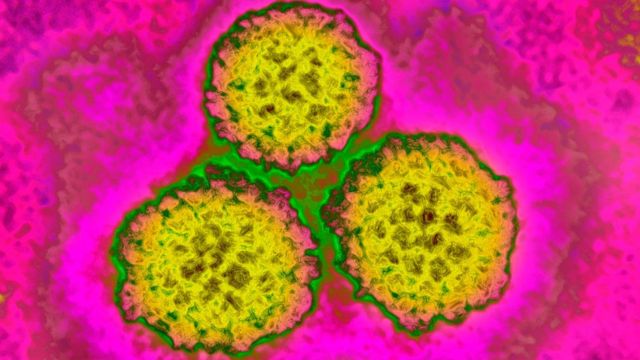
Image source, Getty Images
—
In the case of HPV, the vaccine generates a stronger immune response than the virus itself.
–
What we do know is that, unlike natural infection, from which we can receive a variable viral dose (high, medium or low) that produces different levels of immunity, “when they give you a vaccine, you receive a predetermined dose that we know causes a strong and appropriate immune response, capable of preventing infection in a large percentage of cases, “Jennifer Gommerman, an immunologist at the University of Toronto, Canada, tells BBC World.
–
“There are many similarities: the two things – natural infection and the vaccine – generate neutralizing antibodies and cellular immunity (the process that activates T cells, among other things).”
–
“But one of the big differences is that vaccines do not cause collateral damage an extremely robust immune response, which in many people can be harmful and cause damage to the lungs “, explains the expert.
–
Without a vaccine, says Carlos Rodrigo, going through the disease is “an adventure, a chance, a Russian rouletteWhile it doesn’t cause any problems for some people, it causes very serious problems for others. And others not so serious but persistent over time, and disabling. ”
–
Finally, another advantage of the vaccine is that by supplying a fixed dose, “a standardized immune response in the entire population. It is a way of controlling the response and not leaving it to chance, “adds Shivkumar.
–
And if I had covid-19, is it necessary to get vaccinated?
In Gommerman’s opinion, you should let others vaccinate first because your body should still have a memory of the virus and therefore the ability to fight it, but then it is important that you do so.
–
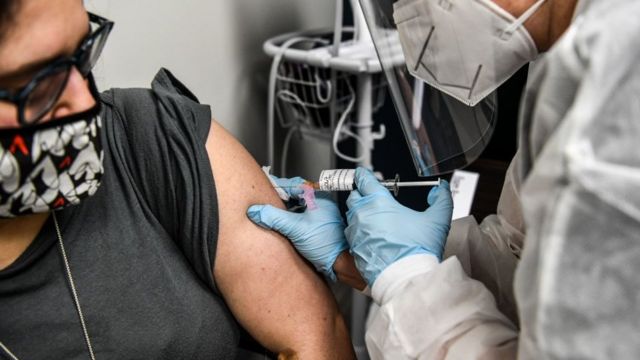
Image source, Getty Images
—
Even if you have had covid-19, it is advisable to receive the vaccine.
–
“First of all, many people never had confirmation of having had the virus, “he says.” When people come to us who think they have had COVID-19 and are tested for antibodies, they do not always test positive because they have not actually been exposed to the virus. ”
–
That is already a good reason to get the vaccine. But on the other hand, “as far as we know, no negative consequences to get the vaccine after having the virus. It’s like boosting your immune response, “says the expert.
–
And third, “your immune response may or may not have been very good, depending on how much virus you were exposed to, and since that load is variable, you will not know where you are on the spectrum, therefore, it is better to take the vaccine. “.
–
Rodrigo has a similar view, although he recommends doing a test first to see if the person still has antibodies.
–
These people “would not be a priority, but it is possible that after a few months, natural immunity will not be sufficient.”
–
“It will be necessary to evaluate if it still has antibodies, because in cases where there are, the vaccine is useless.”
–
 —
—
–
Now you can receive notifications from BBC News Mundo. Download our app and activate them so you don’t miss our best content.
—
